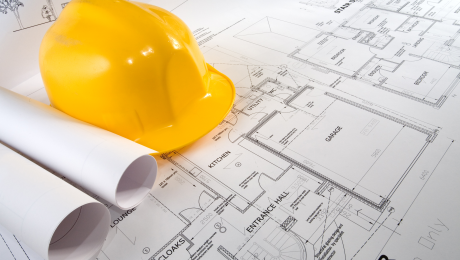Legal Steps for Starting Your Construction Business
Starting a construction business offers great opportunities, but it also requires navigating a series of legal steps for starting your construction business. From selecting the right business structure to obtaining licences, drafting contracts, and ensuring regulatory compliance, each step is crucial to building a solid legal foundation. Understanding and addressing these legal requirements from the start will help you avoid costly mistakes and position your business for long-term success.
1. Choose the Right Legal Structure
When beginning to look at the legal steps for starting your construction business, the first legal step in setting up your construction business is selecting the appropriate legal structure. Your choice will influence your taxes, liability, and management style.
Here are the common options:
Sole Trader
Operating as a sole trader is simple and gives you full control, but it also means you’re personally liable for any debts. If the business faces financial trouble, your personal assets could be at risk.
Partnership
In a partnership, two or more people share ownership. It’s important to have a partnership agreement that outlines each partner’s roles, profit-sharing, and how to handle disputes. Like sole traders, partners are also personally liable for debts.
Company
Forming a proprietary limited company offers limited liability protection, meaning your personal assets are generally shielded from business liabilities. However, this structure comes with more regulatory requirements and ongoing compliance obligations.
Trust
Using a trust can protect your assets and help manage tax liabilities. A family trust, for example, allows a trustee to manage assets for the benefit of beneficiaries, making it beneficial for businesses with multiple owners or family involvement.
2. Register Your Business
Once you’ve chosen a business structure, it’s time to register. This includes:
Choosing a Business Name
Your business name should be unique and reflective of your services. Consider registering a trademark to protect your brand.
Applying for an Australian Business Number (ABN)
An ABN is essential for operating in Australia, allowing you to register for GST and issue invoices. You can apply through the Australian Business Register (ABR) website.
Obtaining Licences and Permits
In the construction industry, securing the necessary licences and permits is critical. This can vary by state but generally includes:
- Buildering Licence: Most states require builders to hold a licence, with specific requirements varying by location.
- Trade Contractor Licences: Additional licences may be needed for specific services, like plumbing or electrical work.
- Development Approvals: Ensure you obtain necessary approvals for your projects, including building and zoning permits.
3. Draft Contracts
Contracts are fundamental to your construction business, outlining the scope of work and obligations. Here are essential contracts to consider:
Client Contracts
A well-drafted client contract should include:
- Scope of Work: Clearly define what work will be performed, including timelines.
- Payment Terms: Specify payment schedules and penalties for late payments.
- Variations: Include provisions for managing changes in scope and associated costs.
Subcontractor Agreements
If you hire subcontractors, a written agreement is important. This should detail:
- Scope of Work: Define the tasks assigned.
- Payment Terms: Outline how and when they’ll be compensated.
- Insurance Requirements: Specify necessary insurance coverage.
- Scope of Work: Clearly set out what the Subcontractor is expected to do including the scope of work inclusions and exclusions
Supplier Contracts
Clear contracts with suppliers ensures reliable access to materials. Include:
- Payment Terms: Define schedules and deposits.
- Delivery Terms: Specify delivery dates and conditions.
- Warranties: Include any warranties for materials supplied.
4. Ensure Compliance with WHS Regulations
Safety is important in construction. Compliance with Workplace Health and Safety (WHS) regulations protects your workers and minimises legal liabilities. Here’s what to do:
Develop a Safety Plan
Create a comprehensive safety plan that includes:
- Risk Assessments: Regularly assess hazards and implement controls.
- Training: Provide adequate safety training for all workers.
- Emergency Procedures: Establish clear emergency response protocols.
Obtain Necessary Insurance
Insurance is vital for protecting your business and meeting legal requirements. Consider:
- Public Liability Insurance: Protects against third-party claims.
- Workers’ Compensation Insurance: Covers employee injuries.
- Contract Works Insurance: Safeguards materials and works in progress.
5. Manage Employee Relationships
As your business grows, you may need to hire employees. Understanding employment laws fosters positive relationships and ensures compliance.
Employment Contracts
Every employee should receive a written contract detailing:
- Position and Responsibilities: Clearly outline job duties.
- Salary and Benefits: Specify remuneration and other benefits.
- Termination Conditions: Define how employment can be terminated.
Compliance with Industrial Relations Laws
Familiarise yourself with the Fair Work Act and related laws, focusing on:
- Minimum Wage: Ensure compliance with wage requirements.
- Leave Entitlements: Understand employee rights regarding leave.
- Workplace Policies: Develop policies on conduct and dispute resolution.
6. Financial Management and Record-Keeping
Effective financial management is important for your business’s success. Key considerations include:
Accounting Systems
Implement an accounting system to manage income, expenses, and payroll, utilising software tailored for construction.
Budgeting and Financial Planning
Create a detailed budget that outlines projected income and expenses, regularly reviewing it to identify variances.
Tax Obligations
A clear understanding of your tax responsibilities, including GST, income tax, and allowable deductions, is essential when establishing a construction business. Early financial planning not only ensures compliance but also positions your business for sustainable growth. Engaging a qualified tax advisor with experience in the construction sector can help you develop a tailored strategy and avoid common financial pitfalls.
Laying the Legal Foundation for Long-Term Success
Launching a construction business requires more than technical expertise—it requires a clear understanding of the legal steps for starting your construction business. With the right guidance, you can navigate the legal and regulatory landscape, make informed decisions, and lay the groundwork for long-term success.
From selecting the most suitable business structure to securing the necessary licences and permits, and preparing robust contracts for clients, subcontractors, and suppliers, each step plays a critical role in reducing risk and ensuring compliance.
Seeking professional legal advice early in the process can help you navigate complex requirements, avoid disputes, and establish clear, enforceable agreements that safeguard your operations.
With strategic planning, legal foresight, and a proactive approach to compliance, your construction business will be well-positioned to grow and compete effectively in a dynamic industry.
~
If you’re facing insolvency or navigating complex legal matters, Brunet Law is here to help you through it. With expertise in insolvency, business, construction law, litigation and dispute resolution, we provide the guidance you need to protect your future.
Contact our office on (07) 3444 9571 or visit our website at brunetlaw.com.au
Brunet Law
~Your Business. Your Projects. Our Expertise~

- Published in Building & Construction
Understanding Construction Contracts: Builder Guide
Understanding construction contracts is a critical part of protecting your business and ensuring the smooth delivery of every project. Whether you’re managing residential builds or large commercial developments, having a clear grasp of contract structures and their implications is essential to avoiding costly disputes and delays.
In this article, we’ll explore the most common types of construction contracts, break down key components you need to be aware of, identify frequent pitfalls to watch out for, and offer practical tips for negotiating contracts that support both your interests and project success.
1. Types of Construction Contracts
Understanding construction contracts means assessing the various types of contracts available helps builders choose the right one for their projects. Here are the most common contract types:
->Fixed-Price Contracts
Fixed-price contracts set a specific price for the entire project. This arrangement provides certainty regarding costs and can motivate builders to work efficiently. However, it also places the risk of unforeseen expenses on the builder. Builders must accurately estimate costs to avoid losses.
->Cost-Plus Contracts
In a cost-plus contract, the client agrees to pay the actual costs incurred plus an additional fee or percentage for the builder’s profit. This type of contract offers flexibility, allowing for changes in scope without the need for renegotiation. However, it may lead to higher overall costs for clients, so transparency in reporting expenses is important.
->Time and Materials Contracts
Time and materials contracts charge clients based on the time spent on the project and the materials used. This contract type works well when project scopes are unclear. Builders should establish clear hourly rates and material costs upfront to maintain trust with clients.
->Unit Price Contracts
Unit price contracts break down the project into individual units, with a set price for each unit. This approach allows for adjustments based on actual quantities used. Builders need to carefully define unit prices to avoid disputes over costs.
2. Key Components of Construction Contracts
A strong construction contract lays the foundation for a successful project. It protects both the builder and the client by clearly outlining expectations, responsibilities, and procedures.
Here are the essential elements every construction contract should include:
->Scope of Work
This section describes exactly what work will be completed. It should list the specific tasks, materials, and timelines involved in the project. A well-defined scope helps prevent confusion, keeps everyone on the same page, and reduces the risk of disagreements down the line.
->Payment Terms
Clearly outline how and when payments will be made. This includes the total contract price, deposit amount, payment schedule (e.g. monthly, by milestone), and how final payment will be handled. It’s also important to include terms for late payments or disputes. Transparent payment terms help build trust and avoid misunderstandings about money.
->Change Orders (or Variations)
Changes are common in construction projects—whether due to design updates, site conditions, or client requests. A good contract should include a clear process for how changes are requested, approved, and priced. This ensures that all changes are properly documented and agreed upon, so there are no surprises for either party.
->Dispute Resolution
If disagreements arise, having a plan in place to resolve them can save time and stress. Contracts should state how disputes will be handled—often starting with negotiation, followed by mediation or arbitration if needed. Choosing a method in advance helps both parties handle issues professionally and avoid costly legal battles.
->Termination Clauses
Sometimes, a project doesn’t go as planned and needs to be ended early. A termination clause explains when and how either party can end the contract. It should cover notice requirements, reasons for termination, and what each party is entitled to if the contract is cancelled. This provides clarity and protection if the working relationship needs to end.
3. Common Pitfalls to Avoid
While contracts are essential, they can lead to issues if not handled properly. Here are some common pitfalls to watch for:
->Vague Language
Ambiguous terms can lead to misunderstandings. Use clear, concise language to define expectations. Avoid jargon that may confuse the parties involved.
->Ignoring Local Laws
Each jurisdiction has specific laws governing construction contracts. Builders must make sure compliance with local regulations. Failure to adhere to these laws can lead to legal issues and project delays.
->Inadequate Insurance Provisions
Contracts should include insurance requirements to protect against liabilities. Make sure the contract specifies the types and amounts of insurance needed to cover potential risks.
->Neglecting Permits and Approvals
Builders often assume that clients will handle permits and approvals. Clearly outline who is responsible for securing necessary permits in the contract to avoid complications.
->Underestimating Project Timelines
Underestimating project timelines can lead to disputes over delays. Include realistic timeframes in the contract and allow for flexibility in case of unforeseen circumstances.
4. Negotiating Contracts
Negotiation isn’t just about getting the best deal—it’s about creating agreements that are clear, balanced, and built for success. For builders, strong negotiation skills can mean the difference between a smooth project and one filled with delays, disputes, or financial loss. Whether you’re dealing with a client, subcontractor, or supplier, knowing how to negotiate effectively helps you protect your business and build long-term relationships.
Here are key strategies to help in understanding construction contracts negotiations with confidence:
->Do Your Research and Come Prepared
Before entering any negotiation, take the time to fully understand the project scope, market rates, and any relevant laws or industry standards. Know your costs—labour, materials, overhead—so you can confidently explain your pricing. Being informed allows you to back up your proposals with facts, not just opinions, which strengthens your position and shows professionalism.
Tip: Prepare a checklist or summary of key points you want to cover in the negotiation so nothing important is missed.
->Be Clear About Your Expectations and Priorities
Start the conversation by clearly stating what matters most to you—whether it’s payment terms, timelines, scope clarity, or change order processes. When you’re upfront about your expectations, it sets a productive tone and helps avoid misunderstandings later. Likewise, knowing which issues are non-negotiable and which areas have flexibility helps you focus on what truly matters.
Tip: Use plain language when explaining your terms to ensure both parties have a shared understanding.
->Listen Actively and Seek to Understand
Negotiation is not just about talking—it’s about listening. Ask open-ended questions and pay close attention to the other party’s concerns, goals, and pain points. Active listening builds trust and shows that you’re committed to finding solutions that work for everyone.
Tip: Repeating back or summarizing the other party’s main points can help confirm understanding and demonstrate that you’re engaged.
->Focus on Collaboration, Not Confrontation
Approach negotiations as a problem-solving discussion rather than a battle to win. Avoid overly aggressive tactics or ultimatums, which can damage the relationship before the project even begins. A cooperative, respectful tone is more likely to result in a contract that both sides feel good about.
Tip: Use “we” language (“How can we make this work?”) to emphasize collaboration.
->Don’t Rush the Process
Contracts are legally binding, so it’s worth taking the time to get the details right. Don’t feel pressured to agree to terms on the spot, especially if something seems unclear or unfair. Go through each section of the contract carefully, ask questions, and, if needed, seek advice from a construction-savvy lawyer or advisor.
Tip: Make sure changes discussed during negotiations are documented and reflected in the final written agreement.
->Put Agreements in Writing
Once terms have been agreed upon verbally, always ensure they are documented clearly in the final contract. Verbal promises won’t protect you in the event of a dispute. A written contract with precise language provides a reliable reference point if issues arise during the project.
Tip: If changes are made during negotiations, double-check the final version to ensure nothing was missed or misworded.
~
Negotiating may feel uncomfortable at first, but with practice, it becomes one of the most valuable skills in your professional toolbox. By approaching negotiations thoughtfully and professionally, you not only protect your business—you also lay the groundwork for successful, collaborative projects built on trust and mutual respect.
5. Making Sure Contracts Protect Your Interests
A signed contract is only valuable if it truly protects your interests.
Here are practical strategies to make sure your contracts do just that:
->Get Legal Advice When Necessary
For complex or high-value projects, consult a construction lawyer. They can help you understand legal terms, spot risks, and ensure your contract complies with relevant laws and regulations.
->Review Every Clause Carefully
Don’t rush. Read through the contract in detail, especially sections on scope, payments, liability, and dispute resolution. Use a checklist to make sure nothing important is missed.
->Document Everything
Keep written records of all project communications, approvals, and changes. Clear documentation creates a reliable reference if any disagreements arise.
->Keep Contracts Updated
Review and revise your contract templates regularly to reflect changes in laws, regulations, and industry standards. Up-to-date contracts are more effective and enforceable.
->Educate Your Team
Make sure key team members have a clear understanding of construction contracts and contractual terminology that affect their work. A well-informed team is less likely to make costly errors or overlook critical obligations.
“Construction is a matter of optimism; it’s a matter of facing the future with confidence” – César Pelli
Understanding construction contracts is essential for builders who want to protect their interests, stay compliant, and deliver successful projects.
By negotiating effectively, communicating clearly, and seeking the right legal advice, you can avoid costly pitfalls and build stronger client relationships.
When done right, your contracts aren’t just paperwork — they’re powerful tools that set the foundation for every successful build.
~
If you’re facing insolvency or navigating complex legal matters, Brunet Law is here to help you through it. With expertise in insolvency, business, construction law, litigation and dispute resolution, we provide the guidance you need to protect your future.
Contact our office on (07) 3444 9571 or visit our website at brunetlaw.com.au
Brunet Law
~Your Business. Your Projects. Our Expertise~

- Published in Building & Construction


